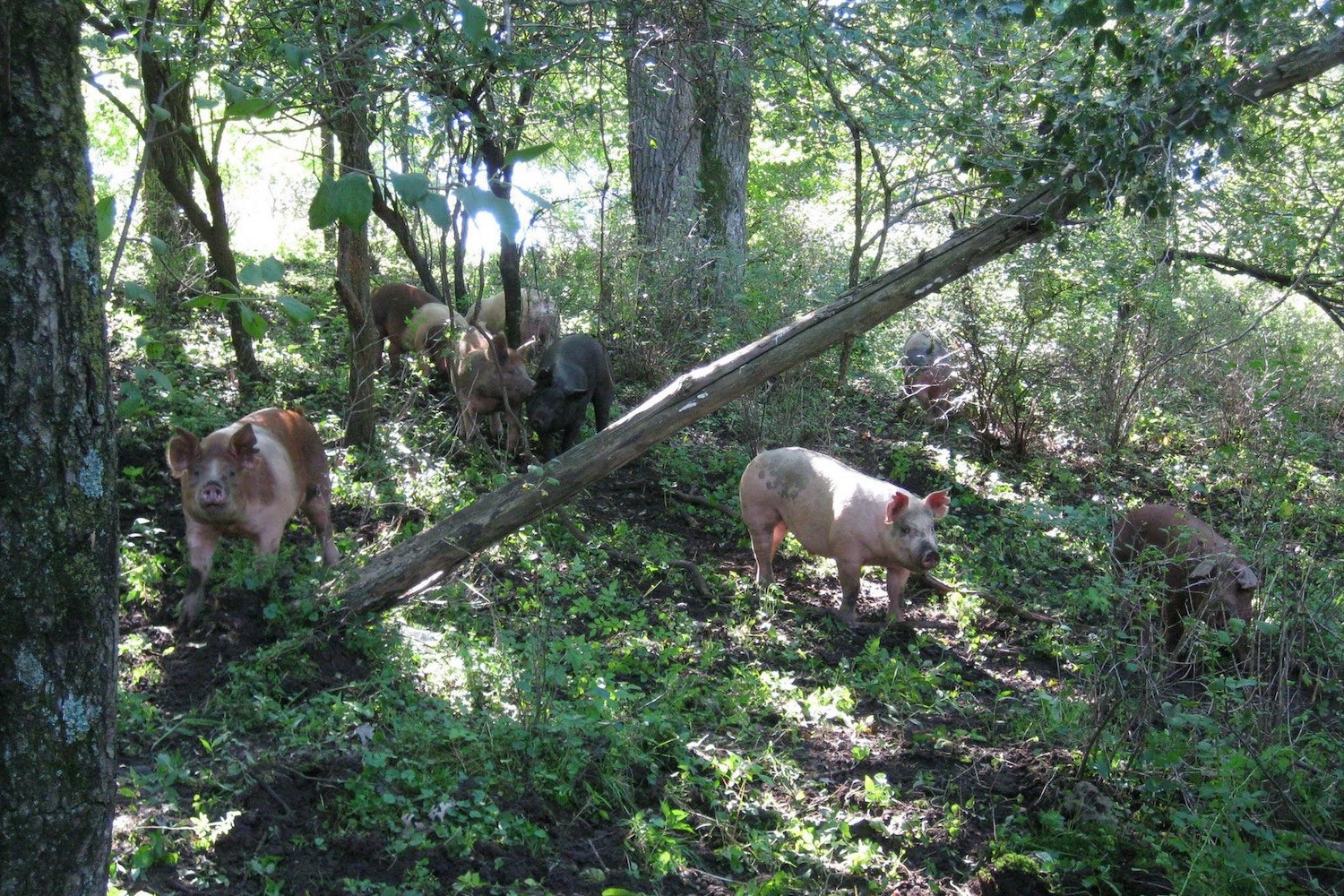Does humane treatment really mean what you think it does?
posted on
February 26, 2021

Being “humane” means that humans have compassion, sympathy, and consideration for their treatment of animals. Especially given the awful state of modern conventional farming, this is really really important!!!
You may have seen the “certified humane” label on products. This label is managed by Humane Farm Animal Care, a not-for-profit organization that’s one of the largest proponents for humane treatment of animals.
Although many large and small farms have become “certified humane”, Miller’s Bio Farm is NOT interested and probably never will be. It’s for the same reasons we aren’t “certified organic” and probably never will be (you can refresh your memory about why we’re sadly not organic here).
On a broad stroke basis, Miller’s Bio Farm checks all the boxes to be certified humane. Here’s an overview of the standards:
✔️ Access to wholesome and nutritious feed
✔️ Appropriate environmental design
✔️ Caring and responsible planning and management
✔️ Skilled, knowledgeable, and conscientious animal care
✔️ Considerate handling, transport, and slaughter
But, when you get into the nitty gritty details, Miller’s only fits in with 99% of the requirements. We don’t want to be held back… even 1%. We want to respond to the unique and individual needs on our farm. Here are a couple examples.
The “certified humane” guidelines say that “tethering of cattle is prohibited.” But, at Miller’s Bio Farm, tethering cattle when they’re in the barn is the most humane way to treat the dairy cows for a few big reasons.
Tethering cows in the barn allows us to easily keep the floors clean and dry. Cows aren’t like humans - they poop and pee wherever and whenever. When clipped in, the feces and urine go (mostly) into a trough behind them. This keeps the floors clean and dry, the cows healthy, and the milk great tasting and clean. It also preserves the manure, which is used to fertilize the fields.
When tethered in a stall, the cows get the food they need. The farmer can make sure each cow gets enough food. The bossy cow doesn’t get the most or push other cows away from the food. It also becomes easy to give cows supplements to fit their individual needs.
Lastly, tethering cows is safe. There is little chance of a cow stepping on another cow or hurting their hoof in the gutter or stepping on a person. Each cow and human has their own place and their own job in the barn.
The “certified humane” guidelines say that pigs should be kept at a minimum of 50 F. The pigs at Miller’s Bio Farm live outside, and in the winter, it does get below 50 F.
Now, of course, if pigs are kept confined in a building with a manufactured floor, sure, warmer temperatures are important. But, if they live in their natural habitat with the resources they need, this rule need not apply.
Domesticated pigs were bred from wild boars, which are native to forests in regions that have cold winters. They are meant to live in the cold.
Farmer Aaron reports that the pigs on Miller’s Bio Farm don’t seem stressed by the winter.
What they do is dig a deep pit with ridges around it to keep water out. They all get in and cuddle. When the pigs are fed, they all pop out and a big cloud of steam rises up. They are definitely warm in there!
This seems the most natural way to raise pigs, and farmer Aaron wouldn’t change a thing.
Then, there are things that are allowed under the “certified humane” label that Miller’s Bio Farm thinks are inhumane and chooses NOT to do.
Just a few examples are feeding animals soy and grain, feeding calves milk replacer (milk and whey powder), finishing cattle in feedyards, vaccination, and lack of enough access to outdoors.
If you value the humane treatment of animals, it’s not about the label. It’s about trusting the ethics of the farmer your food comes from.
In my opinion, there’s no such thing as one size fits all. Not for any farm, not for any medication or vaccination, not for any diet, not for anyone or anything. It’s about compassion, sympathy, and consideration for each unique situation.




